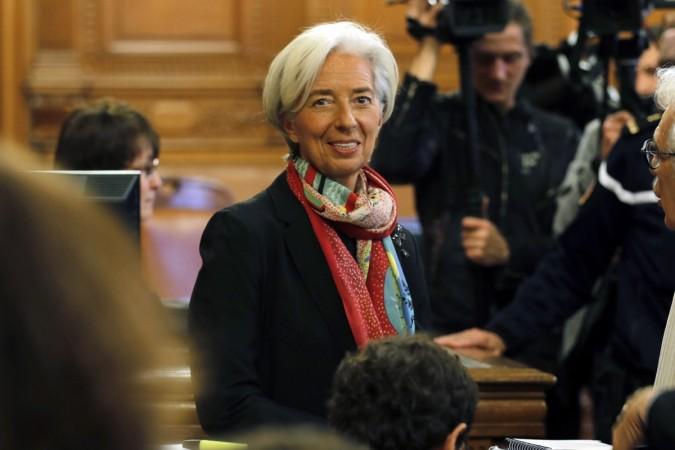
International Monetary Fund (IMF) chief Christine Lagarde has been found guilty by France's Court of Justice of the Republic of misusing public funds when she was the finance minister of the country. However, she left France before the ruling came out, with her attorney informing Reuters that she would not be present at the time of the delivery of the verdict.
The case pertains to the €400 million payout Lagarde sanctioned for a French businessman when she was the French finance minister. Although the charges against her are criminal in nature, she has denied that she was negligent in granting the payout.
Lagarde, however, was not given any punishment for the payout which was the result of an out-of-court settlement. Her lawyers told reporters soon after the court ruling on Monday that they would seek to appeal the verdict in a higher court.
What exactly was Lagarde convicted of?
Lagarde had been accused of negligence in a case of out-of-court settlement that resulted in businessman Bernard Tapie receiving €400 million in damages. He had accused Crédit Lyonnais, one of the major French commercial banks, of irregularities when it oversaw the sale of his stake in Adidas in 1993.
Because the French government had a stake in Crédit Lyonnais, the lengthy legal process that followed cost the government hefty sums. It was probably to put an end to this that Lagarde in 2007 — when she was finance minister — referred it to a private panel for their views on the case.
The panel recommended that the government settle the case with Tapie for €400 million. It is this payout which was alleged to be negligent on Lagarde's part, and for which she has been convicted.
What are the ramifications of her conviction?
For starters, Lagarde is almost a shoo-in for being removed from the post of managing director of the IMF, much like her predecessor Dominique Strauss-Kahn, who was first accused of sexually assaulting her maid, and was soon buried under similar allegations from various parties.
Her departure may send ripples through the European Union, and by extension the whole world. The IMF is already under a lot of stress following the bailout it gave to Greece in 2010 to get its economy in order. Greece has since then botched the economic recovery twice, and has received bailouts both times.
In France, other aspects of the case are being investigated and people connected to allegations regarding them are being prosecuted. For example, Lagarde's former aide and current CEO of telecom major Orange, Stéphane Richard, is expected to face charges soon because it was on his recommendation that Tapie received the €400-million payout.








